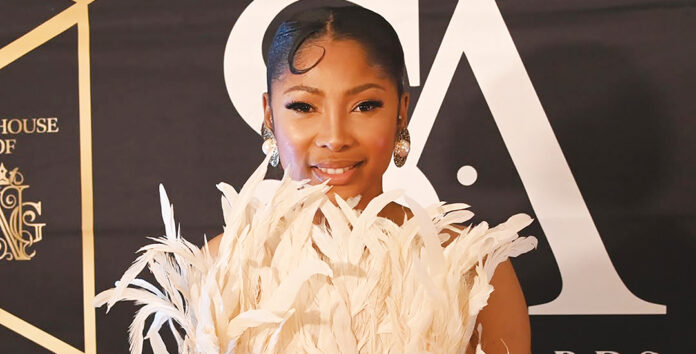I find it a deeply disconcerting development when the “other side” arrogates to itself the duty to take both umbrage and cudgels on behalf of the African.
The black man, like all free people of the world, should be allowed unfettered freedom to frame the narrative of his own struggle and be the sole author of the discourse, especially the accompanying nomenclature.
Whoever decided to refer to the derogatory term as the k-word has done – and continues to do us more harm than good. This euphemism is more revolting and demeaning than the sting inherent in the word itself.
Call the word in full, for what it is. It is ours; we own it. It was meant to debase us, not our latter-day defenders. What’s with this patriarchal unilateralism! For us, without us!
Last weekend I was introduced to a young lady by the name of Enhle Mbali Mlotshwa by members of generation Z who follow her on her socials. True to form, when I saw her, she looked, as her name suggests, like a “beautiful flower”.
Her beauty nearly upset my 16-year-old view that my own daughter was the most beautiful girl in the world!
A bit of background is that Enhle Mbali was on the cusp of inking a brand ambassadorship deal with Carlton Hair. In her speech at the glam event, at the equally glitzy Hyde Park, she used the k-word in an attempt to describe the texture of her own hair type. The heavens nearly fell in!
Carlton Hair pulled the plug, apparently because they cared so much about black hair that they couldn’t stomach the use of the “controversial” word.
One word and the ravaging beauty was out of the pound seat.
This sudden altruism is rich, coming from Carlton Hair, which started its business catering strictly to Caucasian hair. They have just woken up to smell the roses that treating African hair is also a viable commercial enterprise.
To steal from Steve Bantu Biko, Mlotshwa was actually lending “a more human face” to the hair company with her endorsement of their products.
She apparently went on to use acres of space on her social media accounts to try to explain herself.
I empathize with her and totally understand her, as she intimated black people and coloureds “know what I mean”.
Her usage is so different from what Minister of Sports, Arts and Culture Gayton McKenzie was ranting about when he used the word. The poverty of human language failed her. McKenzie did not suffer any moment of weakness or inadvertent use.
I want to argue that Carlton Hair’s newfound political correctness should be taken with a large pinch of salt.
My young source tells me: “The brand has now branched into black people’s hairstyles.”
Their chutzpah to think they can speak for the masses with black hair astounds.
Picture this, if you will. The Nazis published a weekly newspaper called Das Reich in 1940. The crown prince of the Third Reich, Joseph Goebbels, reportedly wrote the lead article in each edition.
An anti-Semite, Goebbels used every platform at his disposal to denounce the humanity of Jews. His articles were read over the radio, reminiscent of the malevolent Hutu gospel against Tutsis that was broadcast on state radio.
That said, imagine Goebbels speaking for Jews!
The temerity of the likes of Carlton Hair to speak for the wearers of black hair should be rejected outright.
Human nature is very complex. Granted, the world can churn out oddities like Oscar Schindler. In Rwanda, at the height of the 1994 genocide, “some people who acted to persecute Tutsis sometimes also acted to offer them aid”.
Carlton Hair would do well to know the wearer of black hair has his own representatives. They should just sit down! Leave k… to black folks.
I envy neither his wealth nor covet his beautiful wife, but when I heard Sean Carter, the US rapper known as Jay-Z, once on the Oprah Winfrey Show, I almost suffered goosebumps.
He was talking about the N-word: “People give words power. For our generation, what we did was that we took the word, and we took the power out of that word. We took a word that was very ugly and hurtful into a term of endearment.” This is what Enhle Mbali Mlotshwa was doing.
One of those who spoke for the black man in the dark days when Carlton Hair was still seized solely with white hair was the late great scribe Stan Motjuwadi, who wrote a column for DRUM called De-Kaffirnated Stan.
For posterity’s sake, let it be known that Motjuwadi had weaned himself, and others of his kith and kin, off the weight of this k-ness. His mind was decolonised. He was de-kaffirnated. K-word, my foot!
• Makatile is Sunday World weekend editor



